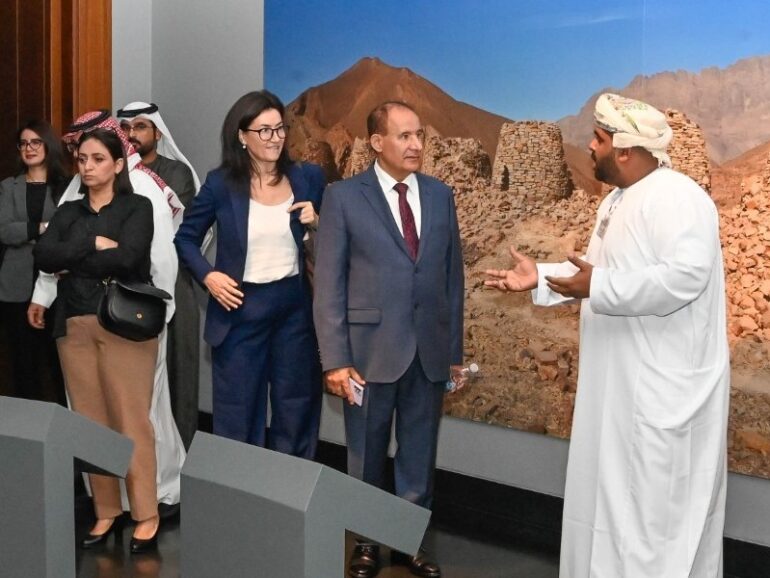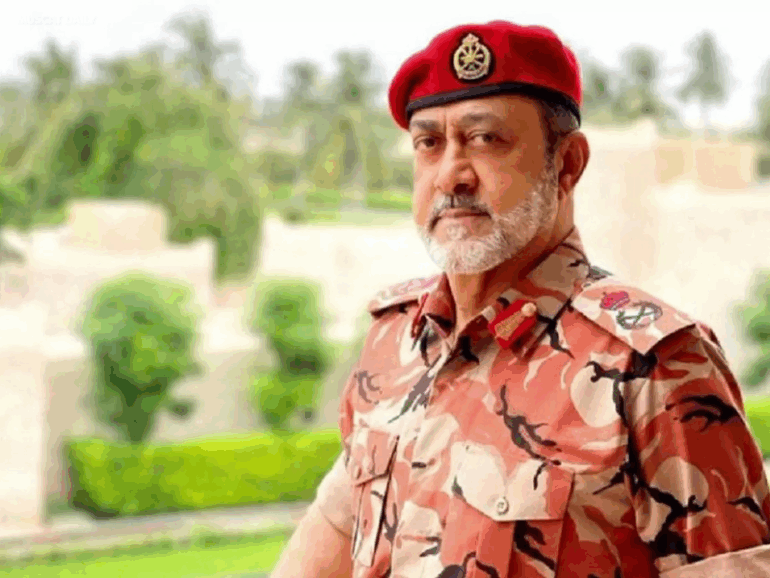
Muscat – A regional meeting to prepare a joint Arab file on ‘Traditional Irrigation Systems: Associated Skills and Practices’ for submission to Unesco opened in Muscat on Tuesday with delegates from 18 countries taking part. The meeting will run till Friday, overseen by H E Sayyid Said bin Sultan al Busaidi, Undersecretary for Culture at […]
Muscat – A regional meeting to prepare a joint Arab file on ‘Traditional Irrigation Systems: Associated Skills and Practices’ for submission to Unesco opened in Muscat on Tuesday with delegates from 18 countries taking part. The meeting will run till Friday, overseen by H E Sayyid Said bin Sultan al Busaidi, Undersecretary for Culture at the Ministry of Culture, Sports and Youth.
Maryam bint Nasser al Kharboushi, Director of the Cultural Identity Department at the Ministry of Heritage and Tourism, said the meeting supports collective Arab efforts to preserve intangible cultural heritage. She noted that traditional irrigation systems reflect the region’s long experience in developing sustainable water-management practices.
She said Oman’s aflaj represent a notable model, combining technical, social and cultural systems for equitable water distribution and maintenance. She added that preparing a unified Arab file underscores shared cultural values and builds on Oman’s long engagement in safeguarding water heritage. Five Omani aflaj were inscribed on the World Heritage List in 2006: Falaj Daris, Falaj al Khatmeen, Falaj al Maliki, Falaj al Jilah and Falaj al Maysar.
Dr Hamid bin Saif al Nofli of the Arab League Educational, Cultural and Scientific Organization (ALECSO) said water heritage has shaped human civilisation across the region. He stressed that the development of traditional irrigation technologies demonstrates how Arab societies have historically adapted to water scarcity. A joint file, he said, enhances the Arab cultural presence in international platforms.

Oman has more than 4,000 aflaj, of which over 3,000 remain active, highlighting the country’s responsibility in coordinating the submission. Dr Abdullah bin Saif al Ghafri, Unesco Chair Professor of Aflaj Studies at the University of Nizwa, called for continuous documentation to ensure the transmission of knowledge. He said irrigation traditions across Arab states share technical and cultural features that warrant collective recognition.
The meeting includes presentations on Oman’s intangible cultural heritage entries and a technical session on aflaj. Delegates will also visit Falaj al Khatmeen in Birkat al Mouz to document practices related to its management. Cultural visits to Nizwa and Muscat are part of the programme.
The gathering brings together representatives from Jordan, the UAE, Bahrain, Tunisia, Algeria, Iraq, Palestine, Syria, Somalia, Kuwait, Lebanon, Libya, Egypt, Saudi Arabia, Morocco, Mauritania and Yemen, besides Oman.


 New licensing and quality standards unveiled for disability sector
New licensing and quality standards unveiled for disability sector
 Garden set up in Rakhyut to revive rare Areib trees
Garden set up in Rakhyut to revive rare Areib trees
 Oman showcases cultural legacy, historical trajectory to global media
Oman showcases cultural legacy, historical trajectory to global media
 Omani doctor wins scientific research award at Riyadh
Omani doctor wins scientific research award at Riyadh
 Ibra Hospital medical team achieves vascular surgery milestone
Ibra Hospital medical team achieves vascular surgery milestone
 H M Sultan Haitham to preside over National Day military parade on Thursday
H M Sultan Haitham to preside over National Day military parade on Thursday